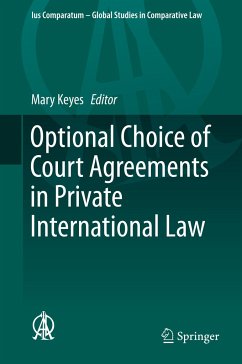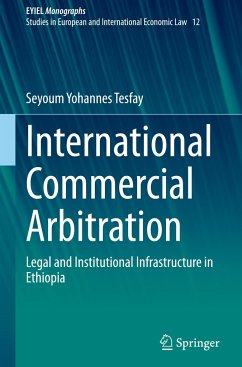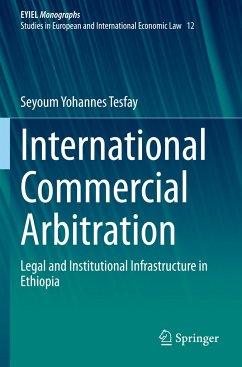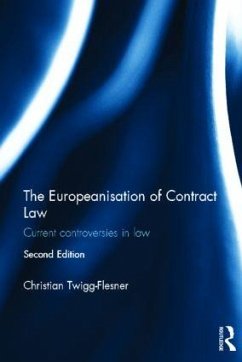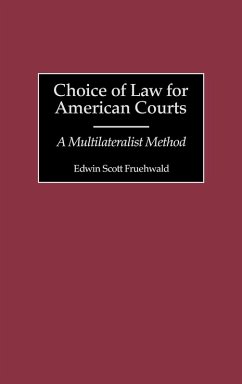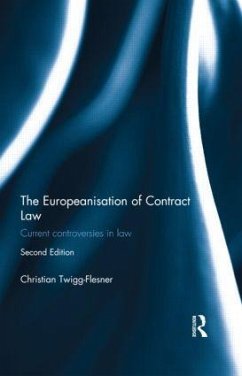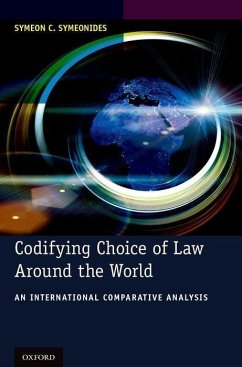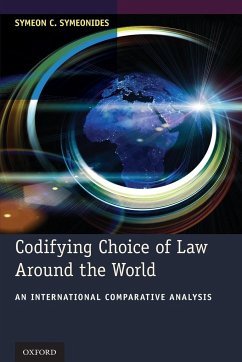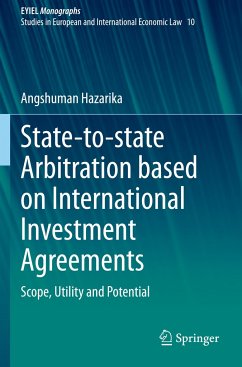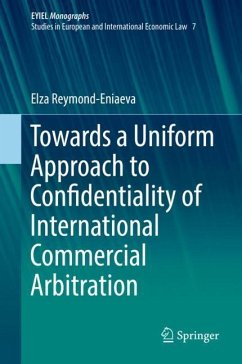
Optional Choice of Court Agreements in Private International Law
Versandkostenfrei!
Versandfertig in 6-10 Tagen
121,99 €
inkl. MwSt.

PAYBACK Punkte
61 °P sammeln!
This book highlights the importance of optional choice of court agreements, and the need for future research and legal development in this area. The law relating to choice of court agreements has developed significantly in recent years, reflecting their increased use in practice. However, most recent legal developments concern exclusive choice of court agreements. In comparison, optional choice of court agreements, also called permissive forum selection clauses and non-exclusive jurisdiction clauses, have attracted little attention from lawmakers or commentators.This collection is comprised of...
This book highlights the importance of optional choice of court agreements, and the need for future research and legal development in this area. The law relating to choice of court agreements has developed significantly in recent years, reflecting their increased use in practice. However, most recent legal developments concern exclusive choice of court agreements. In comparison, optional choice of court agreements, also called permissive forum selection clauses and non-exclusive jurisdiction clauses, have attracted little attention from lawmakers or commentators.
This collection is comprised of 19 National Reports, providing a critical analysis of the legal treatment of optional choice of court agreements, including asymmetric choice of court agreements, under national laws as well as under multilateral instruments. It also includes a General Report offering an overview of this area of the law and a synthesis of the findings of the national reporters.
The contributions to this collection show that the legal treatment of optional choice of courts differs between legal systems. In some countries, the law on the effect of optional choice of court agreements is at an early stage in its development, whereas in others the law is relatively advanced. Irrespective of this, the national reporters identify unresolved issues with the effect of optional choice of court agreements, where the law is unclear or the cases are conflicting, demonstrating that this topic warrants greater attention. This book is of interest to judges, legislators, lawyers, academics and students who are concerned with private international law and international civil procedure.
This collection is comprised of 19 National Reports, providing a critical analysis of the legal treatment of optional choice of court agreements, including asymmetric choice of court agreements, under national laws as well as under multilateral instruments. It also includes a General Report offering an overview of this area of the law and a synthesis of the findings of the national reporters.
The contributions to this collection show that the legal treatment of optional choice of courts differs between legal systems. In some countries, the law on the effect of optional choice of court agreements is at an early stage in its development, whereas in others the law is relatively advanced. Irrespective of this, the national reporters identify unresolved issues with the effect of optional choice of court agreements, where the law is unclear or the cases are conflicting, demonstrating that this topic warrants greater attention. This book is of interest to judges, legislators, lawyers, academics and students who are concerned with private international law and international civil procedure.





